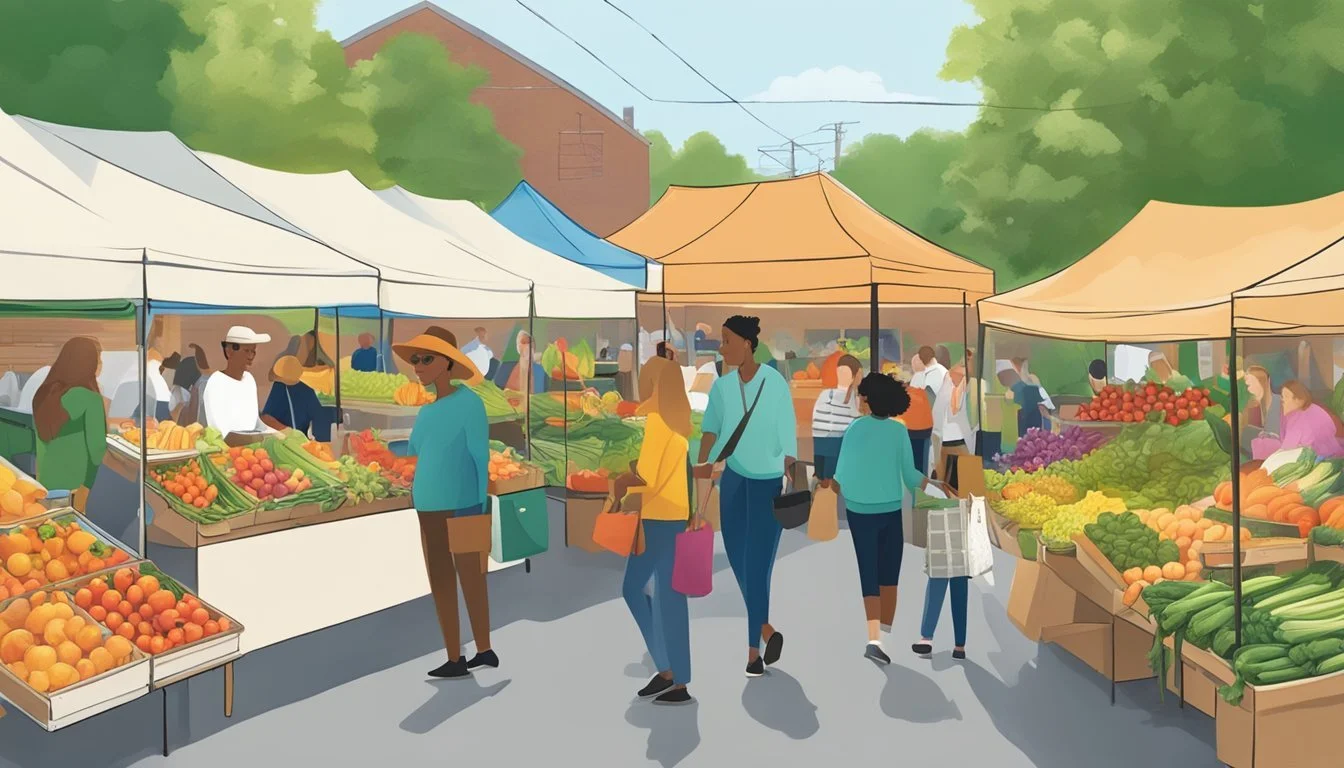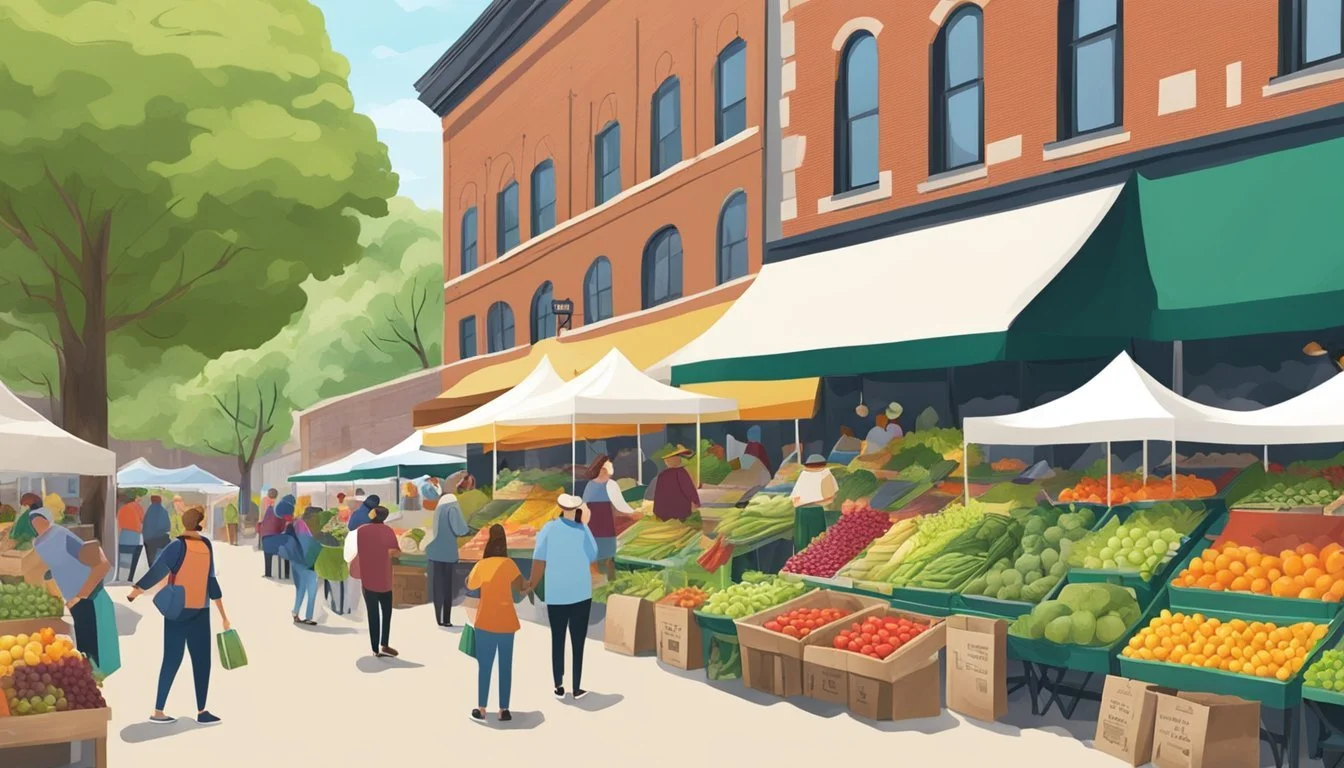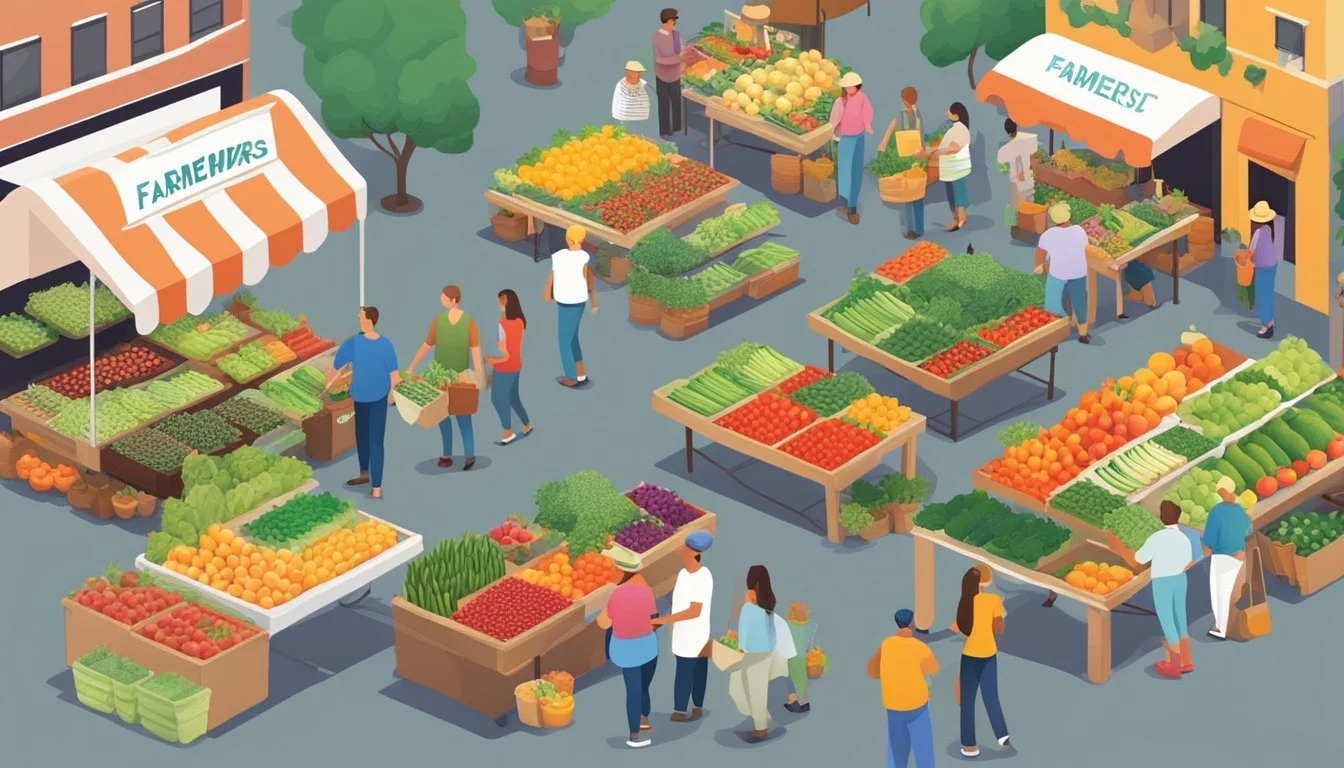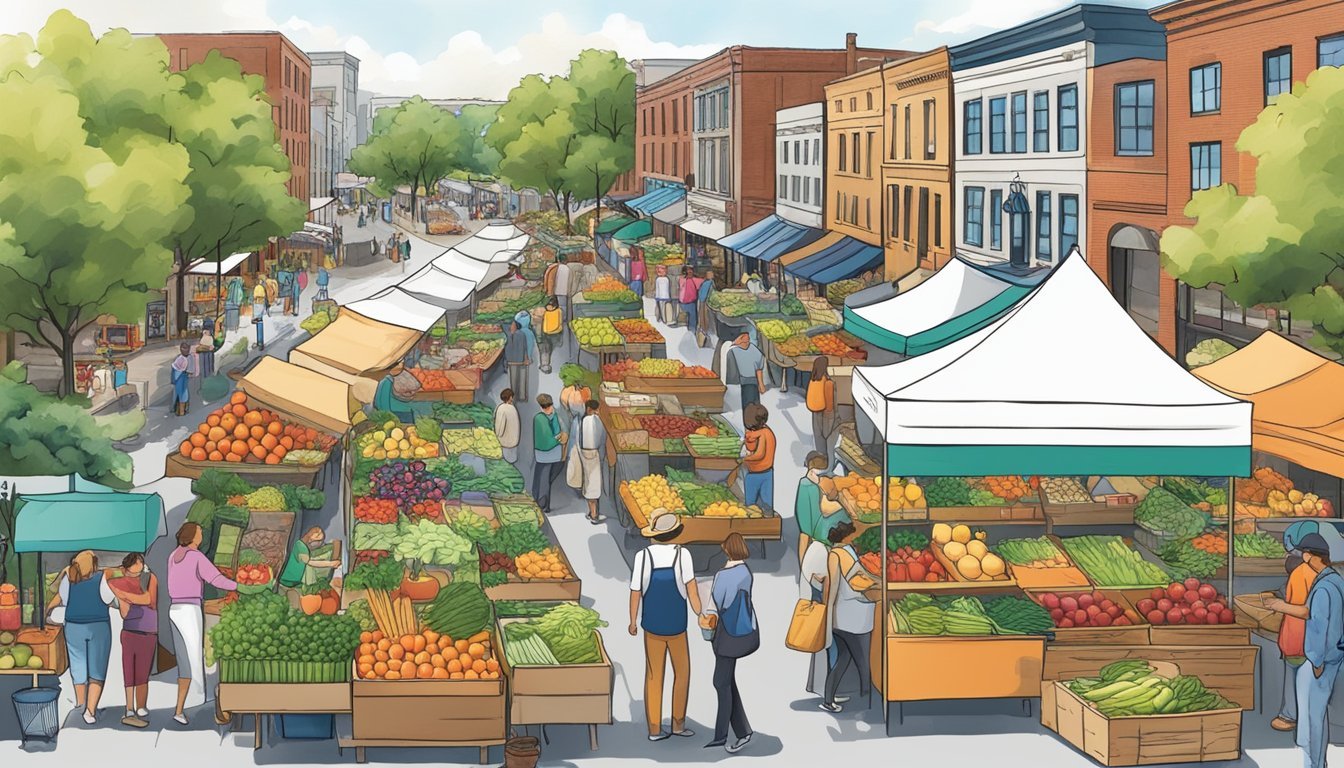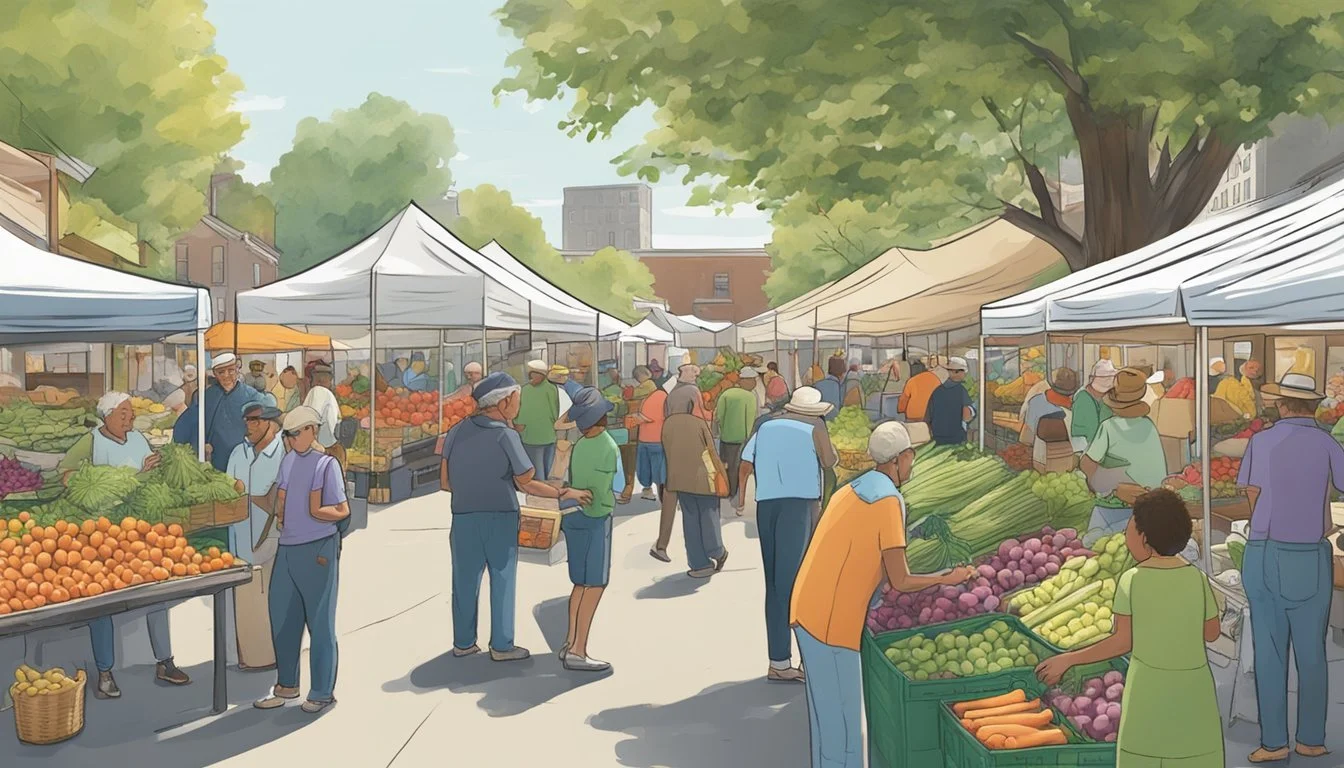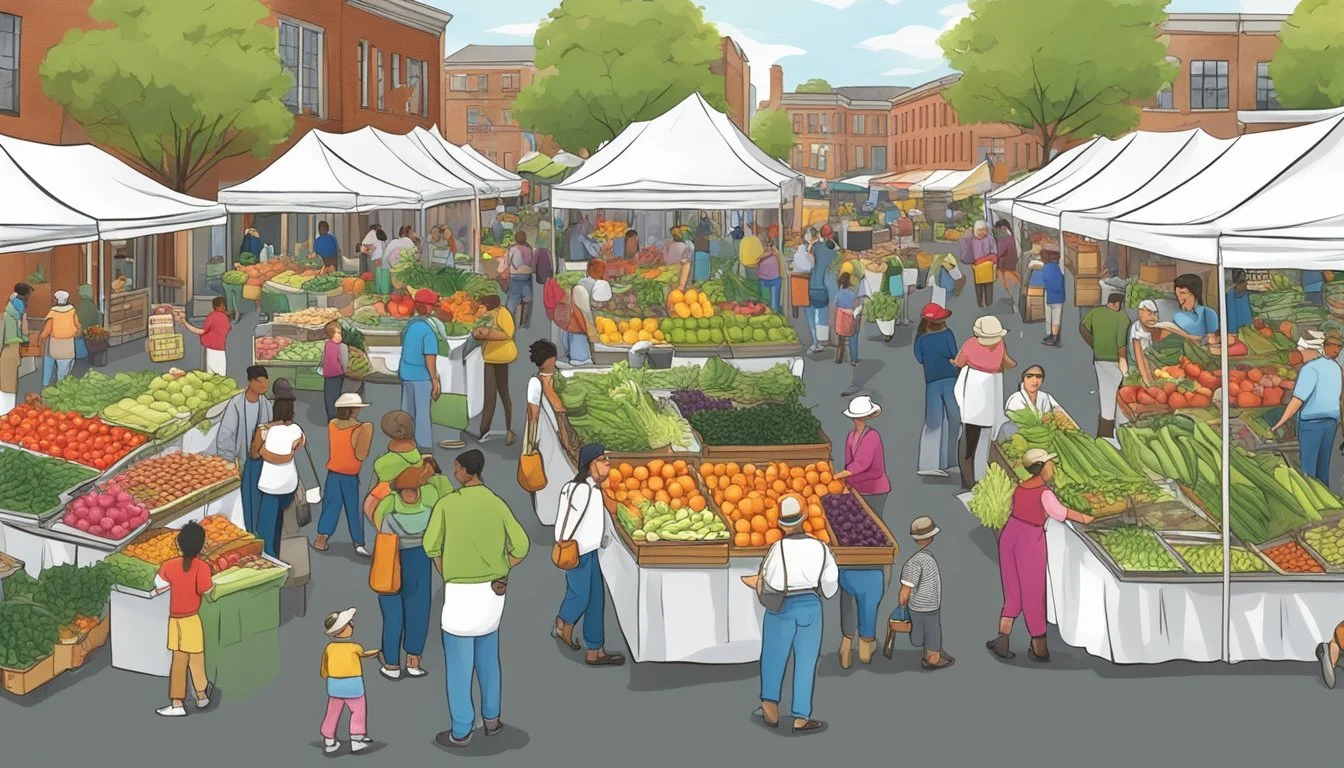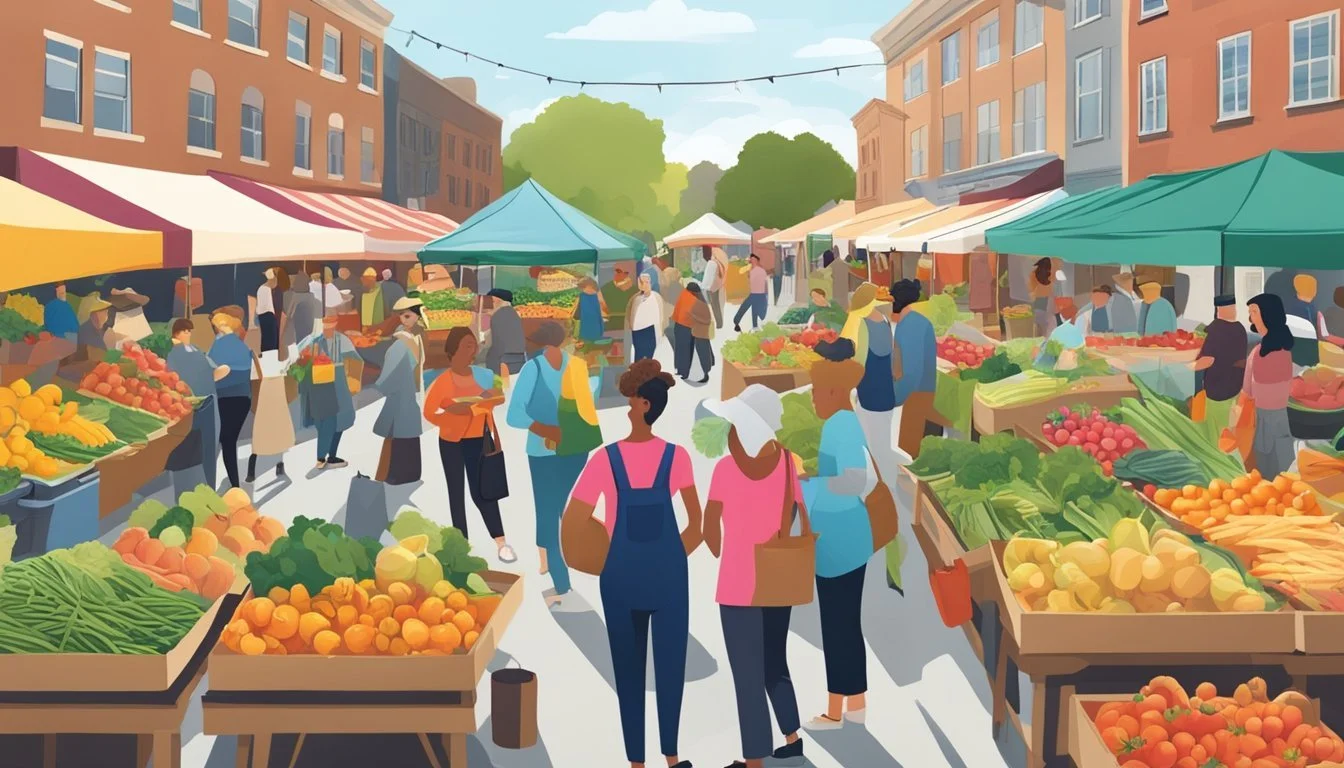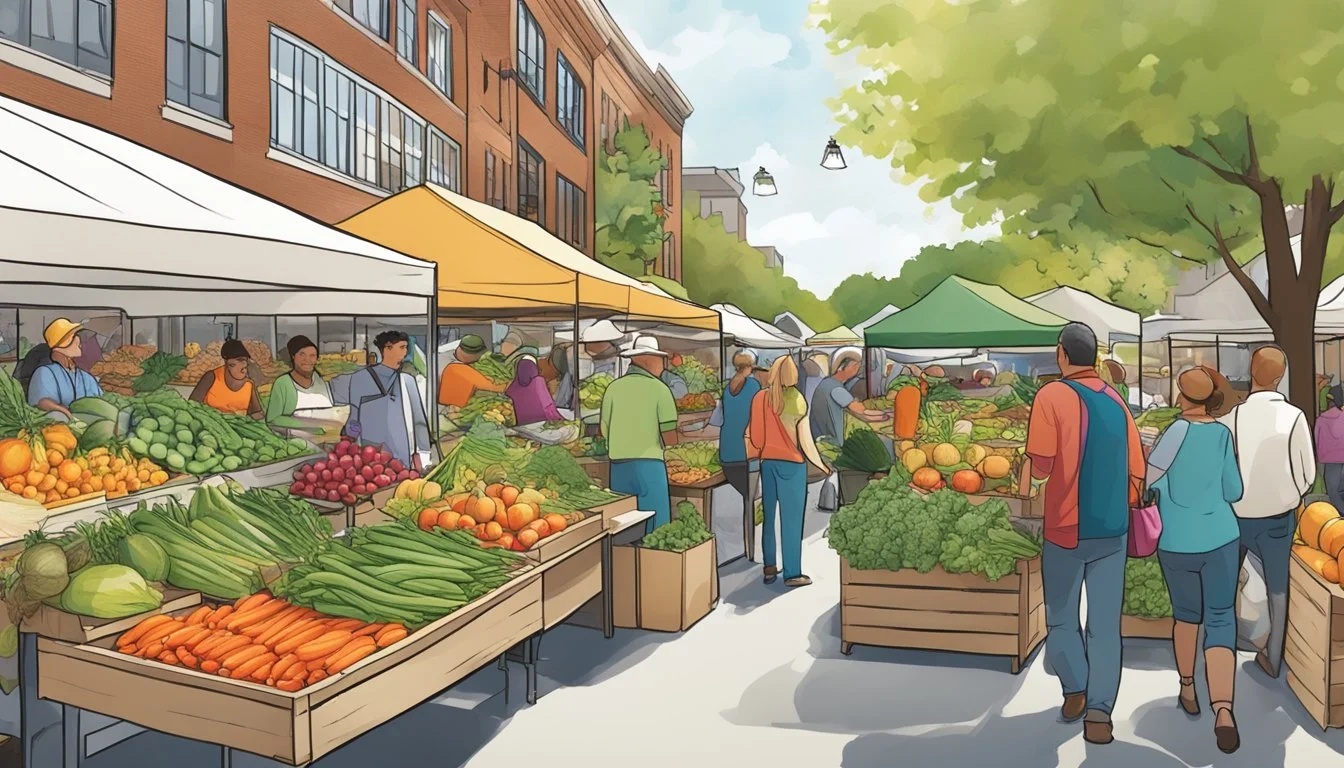Community Supported Agriculture (CSA) in Stamford, CT
A Guide to Local Farm Shares
Community Supported Agriculture, commonly known as CSA, stands as a popular way for consumers in Stamford, CT to buy local, seasonal food directly from a farmer. In this system, consumers purchase shares or memberships in advance, which in turn provides the necessary capital for the farmer to plan the season's production. The members of the CSA then receive a weekly or bi-weekly share of the harvest, including a variety of vegetables and sometimes additional products like fruits, eggs, and dairy.
Stamford's embrace of the CSA model reflects a growing commitment to sustainable agriculture and community building. Residents have the opportunity to support local farms like Fairgate Farm, which operates as a volunteer-powered urban farm that not only supplies fresh, organic produce but also serves as a communal space for educational programs and community events. Stamford residents benefit from the assurance of knowing where their food comes from, enabling a deeper connection to their local landscape and the rhythms of the growing season.
CSAs in Stamford are not just limited to the immediate vicinity. The demand for local, sustainably grown produce has led to the inclusion of farms from the broader region, such as Roxbury Farm CSA based in Kinderhook, NY, which was pioneering in delivering produce to New York City. This model of extended CSA networks allows for a more resilient food system and greater options for consumers, thus strengthening the regional economy while fostering a sense of community through shared support of local agriculture.
The Concept of Community Supported Agriculture (CSA)
Community Supported Agriculture (CSA) is an innovative model of farming and food distribution. It involves a partnership between consumers and farmers where consumers support the farm by purchasing shares of the harvest upfront.
Foundations of CSA
At its core, Community Supported Agriculture (CSA) relies on a fundamental symbiosis between local farms and community members. Consumers participate in CSA programs by buying "shares" of a farm's production before the season begins. This model heavily depends on a buy-in from the community and pre-season funding, lowering the financial risk for local farmers. The initial contributions from community members translate into a predictable cash flow, allowing farmers to plan and execute the agricultural cycle with more stability.
Preseason Commitment: Members pay for shares in advance.
Shared Risk and Rewards: Both farmers and consumers share the risks of farming, such as poor harvests, and the bounty of successful yields.
Benefits to Local Agriculture
CSA programs provide a multitude of advantages to local agriculture. These benefits span economic, environmental, and social domains:
Economic Stability: Farmers gain economic security through pre-paid commitments which aid in covering the upfront costs of planting and harvesting.
Environmental Sustainability: With a focus on local production and distribution, CSAs can reduce the carbon footprint associated with food transport and support sustainable farming practices.
Community Engagement: These programs foster strong relationships between farmers and community members, enhancing local food knowledge and solidarity.
CSAs in Stamford, CT
Stamford, Connecticut, showcases a thriving network of Community Supported Agriculture (CSA) programs, underscoring the city's commitment to sustainable agriculture and local farm support.
Popularity and Growth
The popularity of CSAs in Stamford has seen an upswing as residents seek fresh, organic produce directly from local farms. This enthusiasm is mirrored in the growth of CSA programs, which are instrumental in forging strong community-to-farmer relationships. They enable consumers to subscribe to the harvest of a particular farm, offering financial stability for farmers, while providing households with regular allocations of fresh, locally-produced food.
Local CSA Farms
Several local farms around Stamford have risen to prominence, cementing the city's status in the CSA landscape. Key players include:
Roxbury Farm CSA: A leading entity in the Northeast CSA movement, Roxbury Farm is owned by Jody Bolluyt and Keri Latiolais. It began its operations in 1990 and has since been a staple in providing Stamford with organic produce.
Chubby Bunny Farm: Located within proximity to Stamford, they provide a new CSA option, illustrating the continuous expansion of CSA availability in the region.
These farms, among others, make CSA subscriptions accessible to Stamford residents, allowing them to enjoy seasonal crops while engaging with the local food system.
Participation in CSA
Participating in a Community Supported Agriculture (CSA) program in Stamford, CT involves a commitment to supporting local agriculture, which directly benefits both farmers and consumers. Interested individuals can acquire shares of fresh, locally-grown produce while contributing to the sustainability of small farms.
How to Sign Up
Prospective members should begin by locating a CSA in the Stamford area, such as Roxbury Farm CSA, which has a significant presence in the region. Sign-up often begins early in the year, and individuals can join by visiting farm websites for signup details or attending local farmers markets to connect directly with farmers. It's recommended to act promptly, as CSA shares may sell out quickly.
Membership and Subscription Details
Upon choosing a CSA, individuals will purchase a share of the upcoming season's harvest. Memberships typically involve:
Weekly or bi-weekly pickups of vegetables, dairy, meats, or other produce.
Financial commitment upfront to secure a share.
Seasonal subscriptions, which may vary in length according to each farm's growing season.
Payment plans and financial assistance programs, like CT NOFA's Farm Share Program, may be available to ensure wider community access. Members are encouraged to familiarize themselves with pickup locations and schedule adjustments throughout the season.
CSA Offerings
Community Supported Agriculture in Stamford, CT offers a diverse range of fresh and local food products, directly connecting consumers with the source of their food.
Variety of Produce
Stamford's CSAs provide a broad range of vegetables throughout the growing season. Consumers can expect to find staple crops such as tomatoes, lettuce, carrots and onions, alongside rotational seasonal selections that might include kale, peppers, and squash. The specific offering at any given time reflects the regional growing conditions and crop rotations that local farmers follow to maintain soil health and biodiversity.
Fruits, Vegetables, and More
In addition to vegetables, CSAs often supply a selection of fruits where the climate and season allow, including items like apples, berries, and pears. But Stamford's CSA contributions don't stop at produce. Many farms also provide an array of other foodstuffs:
Meat and Dairy: Options can range from grass-fed beef and free-range poultry to fresh milk and artisan cheeses.
Eggs: Farm-fresh eggs are frequently available, offering a taste that is often preferred over store-bought alternatives.
Additional Offerings:
Honey: Local honey, rich in regional flavors and often touted for its allergen-soothing potentials.
Mushrooms: Specialty varieties that may be hard to find in traditional markets.
The combination of these items at Stamford's CSAs not only supports the local economy but also encourages a diverse and nutritious diet.
Seasonal Harvest and Availability
In Stamford, CT, understanding the seasonal patterns and options for year-round produce is vital for those interested in Community Supported Agriculture.
Understanding Harvest Season
CSAs in Stamford typically operate during the primary growing season, which spans from late spring through early fall. During this period, members can expect a diverse array of vegetables and fruits, correlating with the ripening schedule of local crops. For example:
Late Spring: greens, peas, and early root vegetables
Summer: tomatoes, corn, peppers, and summer squash
Early Fall: pumpkins, apples, and late-season root vegetables
Members receive weekly or bi-weekly shares of the harvest, which are reflective of the current bounty.
Winter CSAs and Year-Round Supply
Despite Connecticut's cold winters, some farms offer winter CSA programs that extend the availability of locally-grown produce beyond the traditional harvest season. These programs may include:
Stored Produce: root vegetables, winter squash, and hardy greens
Hoophouse-Grown Crops: lettuces, kale, and spinach
Year-round CSAs manage to provide fresh produce by utilizing greenhouses and other season-extension techniques. Furthermore, products such as preserves, honey, and other farm-produced goods might be offered to supplement the winter shares.
Financial Aspects of CSA
Community Supported Agriculture (CSA) provides a structured payment system for consumers to receive regular produce from local farms. These financial arrangements help with farm cash flow and offer fresh food to the community.
CSA Payment Plans
A fundamental part of the CSA model is the payment plan. Members of a CSA generally pay for their share of the harvest upfront. This payment supports the farm's operational costs at the beginning of the growing season. Some farms in Stamford, CT, provide flexible payment plans that allow for installments rather than a single lump sum. This eases the financial burden on members and can encourage broader participation in the CSA program.
Affordability and Payment Options
Farms are increasingly providing various payment options to make CSA shares accessible to a wider audience. Programs like CT NOFA's Farm Share Program help reduce costs for those in need of financial assistance while still ensuring farmers receive full payment. These are some of the key options:
Upfront Payment: Full payment at the start of the subscription, often with a discount as an incentive.
Installment Plans: Dividing the total cost into monthly or periodic payments.
SNAP/EBT: Certain CSAs accept SNAP/EBT benefits, either up to the full cost or as part of payment.
It's important for individuals interested in joining a CSA to inquire with farms about their specific payment structures and any assistance programs that may be available.
Distribution and Pickup
In Stamford, CT, participants in Community Supported Agriculture programs have flexible options regarding the distribution and pickup of their farm shares. These options include the convenience of multiple pickup locations and even home delivery services for select areas.
Pickup Locations and Logistics
CSAs typically arrange for convenient local pickup points where community members can collect their fresh produce. For example, Stamford offices can serve as distribution points for CSA members. Chubby Bunny Farm offers pickups at 700 Canal Street every Tuesday from 4-6 PM for a 15-week period. Other farms may have pickup options at workplace and community locations or at local farmers markets, like the one in New Canaan, operating Saturdays from 10am-2pm.
Pickup Schedule:
Chubby Bunny Farm: Tuesdays, 4-6 PM
New Canaan Farmers Market: Saturdays, 10 AM - 2 PM
Participants should ensure that they adhere to the pickup schedules to maintain the freshness of their orders and support the farm’s logistical needs.
Home Delivery Services
Certain farms also feature home delivery services, extending convenience for those unable to visit pickup locations. Delivery areas may include parts of eastern New York and the county of Fairfield, CT. Farms use reliable distribution systems to ensure fresh produce is delivered to customers' doorsteps or designated community drop-off points.
Home Delivery Areas:
Eastern New York
Fairfield County, CT
Consumers should check with their specific CSA provider to confirm delivery availability and any possible fees associated with home delivery options.
Community Involvement
Community Supported Agriculture programs in Stamford, CT, foster strong bonds between local farms and the community by engaging families and promoting educational initiatives.
Collaboration with Families and Community Members
CSAs in Stamford have become a nexus where local families and community members unite through shared support of sustainable agriculture. They do this by providing individuals the opportunity to purchase shares of a farm's harvest. These collaborations ensure that families have access to fresh, locally sourced produce and, in turn, local farms receive direct financial support from their community. Notably, programs like CT NOFA's Farm Share Program help by reducing the cost for families in need while ensuring farmers are fully paid.
Education and Events
Stamford's CSAs also play a pivotal role in educating both adults and children about the importance of local farming and sustainable food systems. They achieve this through various events and programs that encourage community participation. From farm visits for children that integrate hands-on learning about agriculture to cooking classes for adults that utilize local produce, these events aim to promote a greater understanding and appreciation for the food journey, from farm to table.
Sustainability and Organic Practices
In Stamford, CT, local farms are actively engaged in sustainable farming methods and hold a commitment to organic practices, emphasizing the avoidance of synthetic pesticides and fertilizers.
Sustainable Farming Methods
Farms around Stamford employ various sustainable techniques designed to respect and enhance the natural environment. Roxbury Farm CSA, a prominent community-supported farm, integrates sustainable practices on approximately a 1-acre plot. They use methods that maintain soil health, foster biodiversity, and minimize waste. Another example is a volunteer-powered urban farm situated in the heart of the West Side of Stamford, both of which demonstrate a practical commitment to sustainability within local agriculture.
Organic Certification and Pesticide Use
Organic certification is a rigorous process that requires farms to adhere to strict guidelines, including the prohibition of most synthetic pesticides and fertilizers. CSAs such as Chubby Bunny Farm focus on keeping their farming methods aligned with these standards, providing an entire season of organic produce. Forest Hills Tuv HaAretz CSA underscores the provision of organic produce at affordable prices, reinforcing the connection between community support and sustainable, organic agriculture. Farms in the Stamford region are helping to rebuild the local food community through such certified organic practices.
Marketing and Sales
In Stamford, CT, CSAs employ strategic marketing and sales tactics to foster direct relationships between producers and consumers. This approach not only maintains the viability of local agriculture but also meets the growing consumer demand for fresh, local farm products.
Sales Channels and Storefronts
Community Supported Agriculture in Stamford utilizes a variety of sales channels to distribute their produce. These include on-farm stores, farmers' markets, and direct subscription-based models where consumers can purchase shares of the farm's harvest. Grocery stores sometimes partner with CSA programs to provide a retail outlet for their products, broadening the consumer base. CSA operations often feature an online presence, taking advantage of digital platforms to manage subscriptions and communicate with members.
On-farm stores
Farmers' markets
Subscription shares
Online platforms
Grocery store partnerships
Role of the Market Manager
A market manager plays a pivotal role in the success of a CSA's marketing and sales strategies. This individual is tasked with coordinating the CSA's presence in various markets, whether it's an on-site farm store, local farmers' markets, or partnerships with grocery stores. They are responsible for inventory management, ensuring a steady supply of farm products to meet consumer demand, and often engage in direct interaction with CSA members and retail customers to gather feedback and foster relationships.
Inventory management
Market coordination
Consumer relations
Feedback analysis
Technology and CSA
In Stamford, CT, the integration of technology has significantly modernized the operations of Community Supported Agriculture (CSA). This modernization is primarily evident in their use of sophisticated data analytics and digital management platforms.
Use of Data and APIs
CSAs have begun to leverage data to inform their planting and harvesting decisions, optimizing crop yields to meet consumer demand efficiently. They utilize APIs (Application Programming Interfaces) to gather weather forecasts, soil health data, and market prices, ensuring that farmers can anticipate challenges and opportunities. The collection of data through these channels supports better forecasting and resource allocation, with an aim to improve overall farm productivity.
Digital Platforms for CSA Management
The management of CSA subscriptions, payments, and communication with members has been greatly enhanced through digital platforms. These platforms offer a centralized location where members can sign up for shares, choose their produce, and manage their accounts with ease. Such platforms often include features like:
Email Notifications: Automated systems inform subscribers about pickup times, community events, or payment confirmations.
Membership Management: A streamlined process for signups, renewals, and cancellations.
These technological advancements have brought CSA operations in Stamford into the digital age, facilitating greater efficiency and better member-farmer relationships.
Supporting CSA in Connecticut
In Connecticut, the support for Community Supported Agriculture (CSA) programs reflects a commitment to sustainable farming and community health. Two key players making significant contributions to this effort are the CT Northeast Organic Farming Association (CT NOFA) and various partnerships that strengthen ties between farmers and consumers.
Initiatives by CT NOFA
CT NOFA galvanizes the local food system through its Farm Share Program. This initiative helps economically disadvantaged individuals afford fresh, local produce by reducing the cost of CSA shares. By ensuring that participating farms receive full payment for their produce, CT NOFA sustains the financial viability of local agriculture while promoting food equity.
Programs and Partnerships
Connecticut CSA programs thrive due to strong partnerships, such as collaborations between farmers and local marketplaces. Farmers benefit from these partnerships by securing a reliable consumer base, and consumers enjoy the guarantee of high-quality local produce. Participating farms across the state open sign-ups for CSA shares annually, often at the start of the year, which are pivotal in maintaining a steady flow of support for Connecticut's agriculture throughout the seasons.


